Sake brewery and rice fields
Several of Saku’s sake breweries have been inspired to grow their own rice. Learn about the brewery rice fields, how they’re managed and the sake made from the rice they grow.
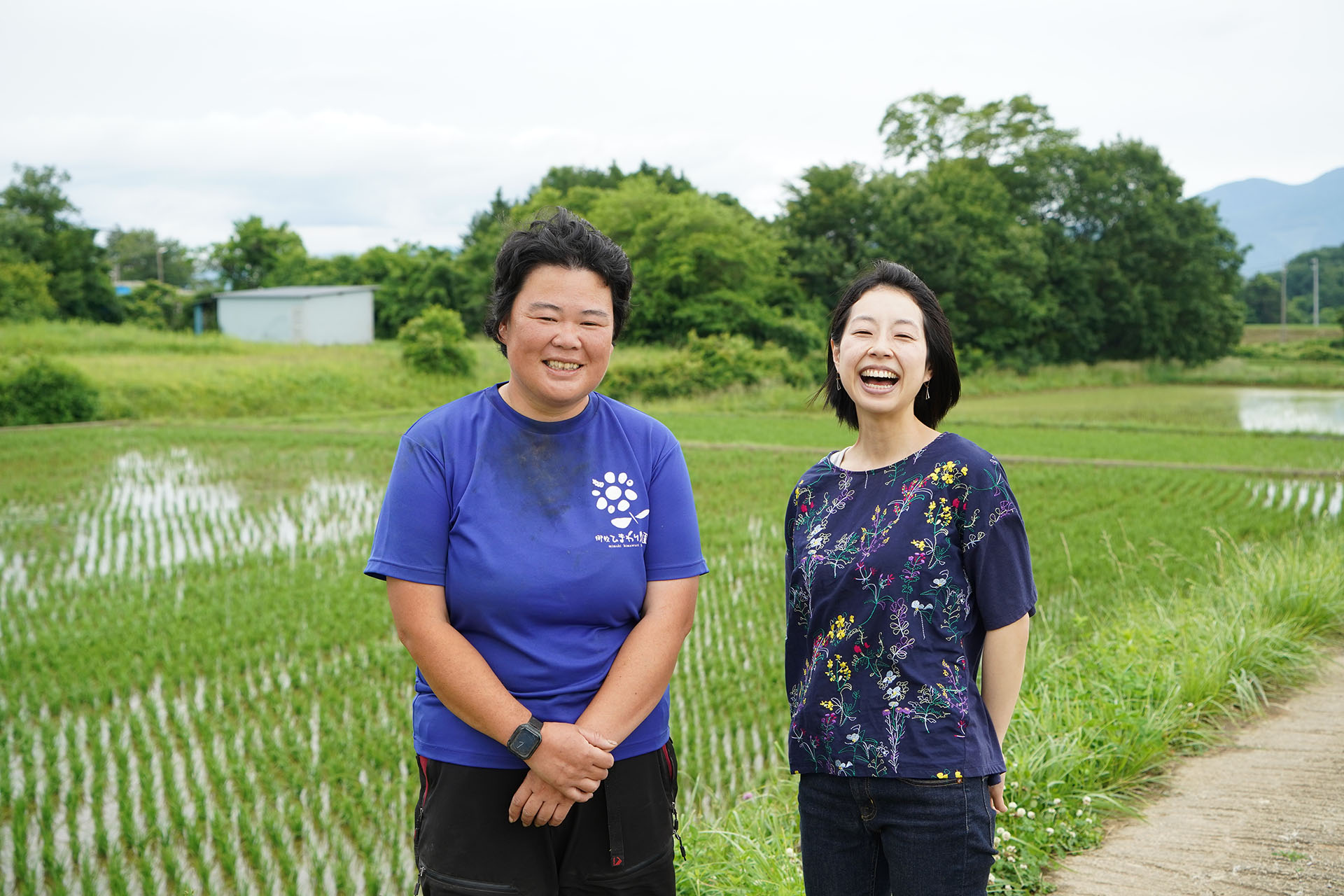

Otsuka Sake Brewery
Mimakigahara | Sankei Nishiki
Panoramic mountain views
from the fields of Mimiakigahara
Mimakigahara is a broad plateau with gently rolling hills at an elevation of 700–800 m (2295–2625 ft). It’s perfectly positioned to catch the breeze as you enjoy beautiful views of the area’s peaks, including Mt Tateshina, the North Japan Alps and Mt Asama. Lacking river water, the area and instead relies on plentiful ponds to supply its rice fields. Ikumi Kakegawa of the Mimaki Himari Farm grows Sankei Nishiki here for the Otsuka Sake Brewery.
MORE


Osawa Sake Brewery
Motai Kasugamu Kaizori | Hitogokochi
Family-owned fields now growing sake rice
Motai Kasugamu Kaizori is ideally placed for fine views of Mt Asama and Mt Tateshina, as well as beautiful rice fields laid out in rising terraces. Morihisa Ito’s family have farmed here for generations, and Susumu Osawa – 13th generation owner of Osawa Brewery – fell in love with his fields at first sight. Their meeting led to Morihisa growing the table rice Nagano Homare for the brewery, followed by the sake rice Hitogokochi.
MORE
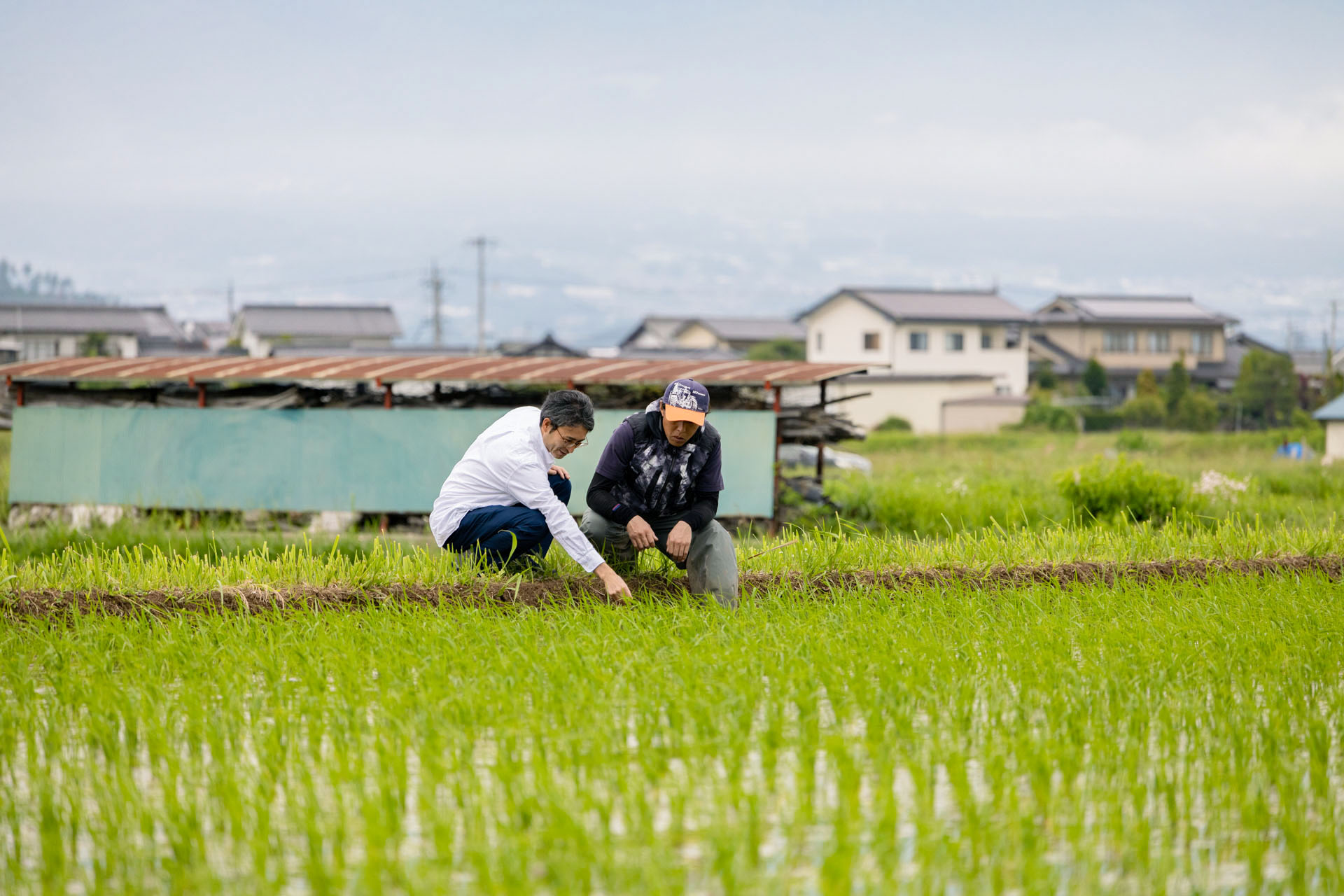

Tsuchiya Sake Brewery
Gorobeshinden | Kinmon Nishiki, Hitogokochi
Famous rice from the Gorobeshinden
The area gets its name from local lord Gorobei Ichikawa, who used his own funds to develop rice fields here 370 years ago, including an irrigation system fed by spring water from Mt Tateshina. “Gorobei” is also a famous brand of Koshihikari rice, grown by Kazunori Maruyama of Farm Nakatsuru alongside sake rice including Sankei Nishiki and Hitogokochi supplied to Tsuchiya Brewing.
MORE


Fuyou Sake Brewery
Nozawa | Kogen no Shizuku
Fields famous for Kogen no Shizuku rice
Mr. Akinori Ide has been entrusted with producing sake rice by Tachibana Kura Sake Brewery for many years.Miyama Nishiki from Tachibana Kura Sake Brewery is grown in his rice fields.19th generation brewery owner Tyler Ide believes that the brewery needs to grow its own rice in order to increase the appeal of its products. This rice field is also the setting for KURABITO STAY's sake tourism.
MORE
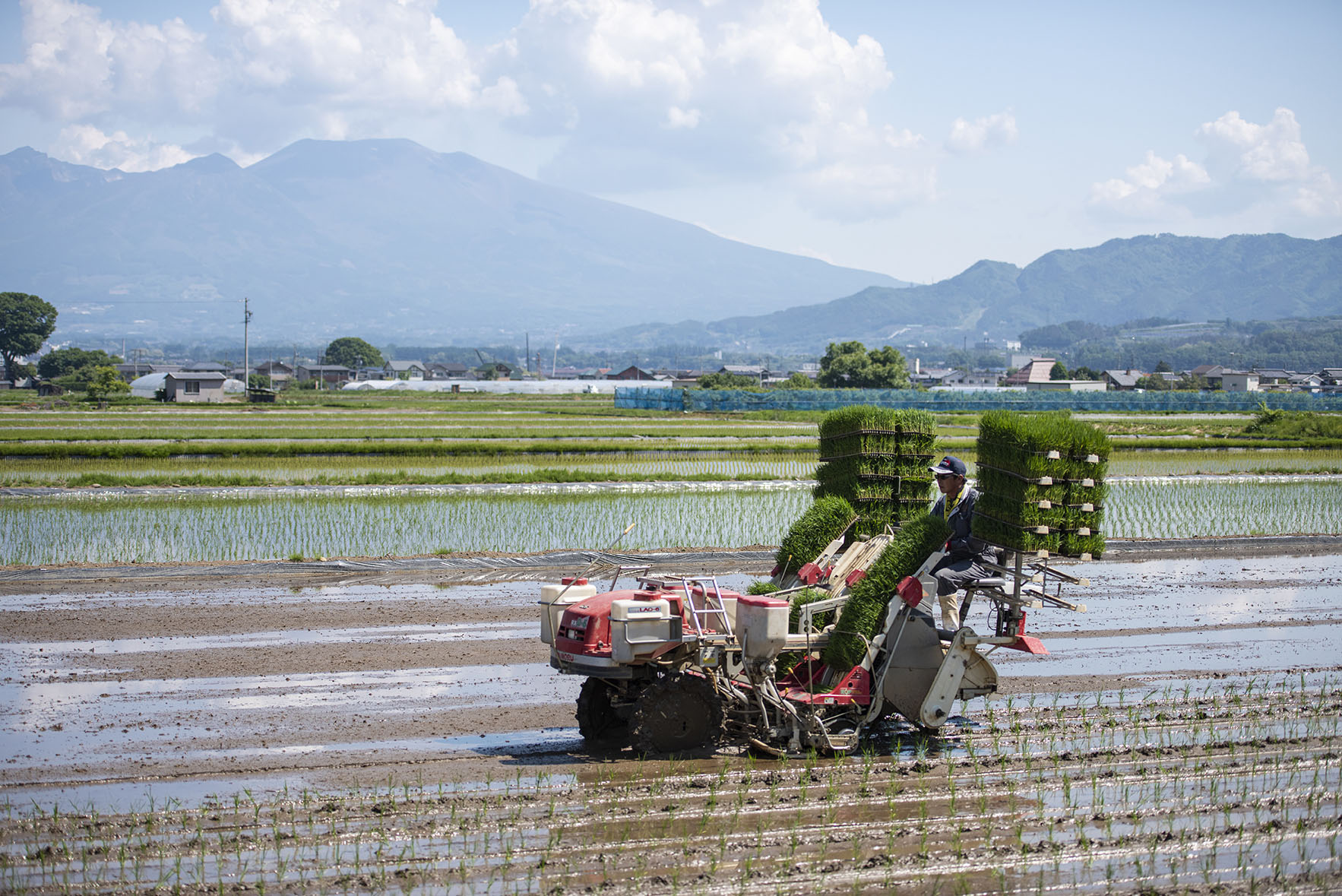

Kitsukura Sake Brewery
Usuda | Miyama Nishik
Kitsukura Sake Brewery challenge
themselves with their own rice fields
Kitsukura Sake Brewery have their own rice fields in Usuda Shimoyanata, where they grow the sake rice Kinmon Nishiki under the guidance of their long-term partner and contract farmer Akinori Ide. 19th generation brewery owner Tyler Ide believes that the brewery needs to grow its own rice in order to increase the appeal of its products, so he and his team have thrown themselves into rice farming so as to make even better sake.
MORE


Kitsukura Sake Brewery
Usuda | Kinmon Nishiki
Starting small in their own rice fields
Kitsukura started growing their own rice in 2020 in the area locals call “behind the Rose” – next to the Rose Beauty Salon at the rear of the brewery, where the Sumiyoshi Bridge passes over the Chikuma River near a cozy cluster of homes. Experienced professional rice farmer Akinori Ide helps them cultivate the tiny area, where the brewery owner and his brewing team work hand in hand to grow Kinmon Nishiki.
MORE


Fuyou Sake Brewery
Osawa | Hitogokochi
Rice nurtured by the bountiful water
of the Chikuma River
Shigeyuki Koizumi grows rice in the Mitake area of Osawa, Saku City because it has plenty of pure water as well as cold nights and warm days–just what he needs to grow delicious, slightly sweet, large-grained rice. Confident that the area could also produce good sake rice, he started growing Hitogokochi and now supplies it to the Fuyou Sake Brewery.
MORE


Tsuchiya Sake Brewery
Shimo Odagiri | Sankei Nishiki
Rice fields with hard-won
JAS organic certification
Katsuji Tajima relies on organic farming methods to grow rice and vegetables in Kiyokawa, so it was only a matter of time before he met Satoshi Tsuchiya, 6th generation owner of Kamenoumi Tsuchiya Brewing, who was looking for organically grown sake rice. Despite having his hands full with his crop of Koshihikari, Katsuji also wanted to help another local business and and so started growing Sankei Nishiki. Satoshi was delighted with the results, and uses the organically grown Sankei Nishiki to make their Akanesasu BIO.
MORE
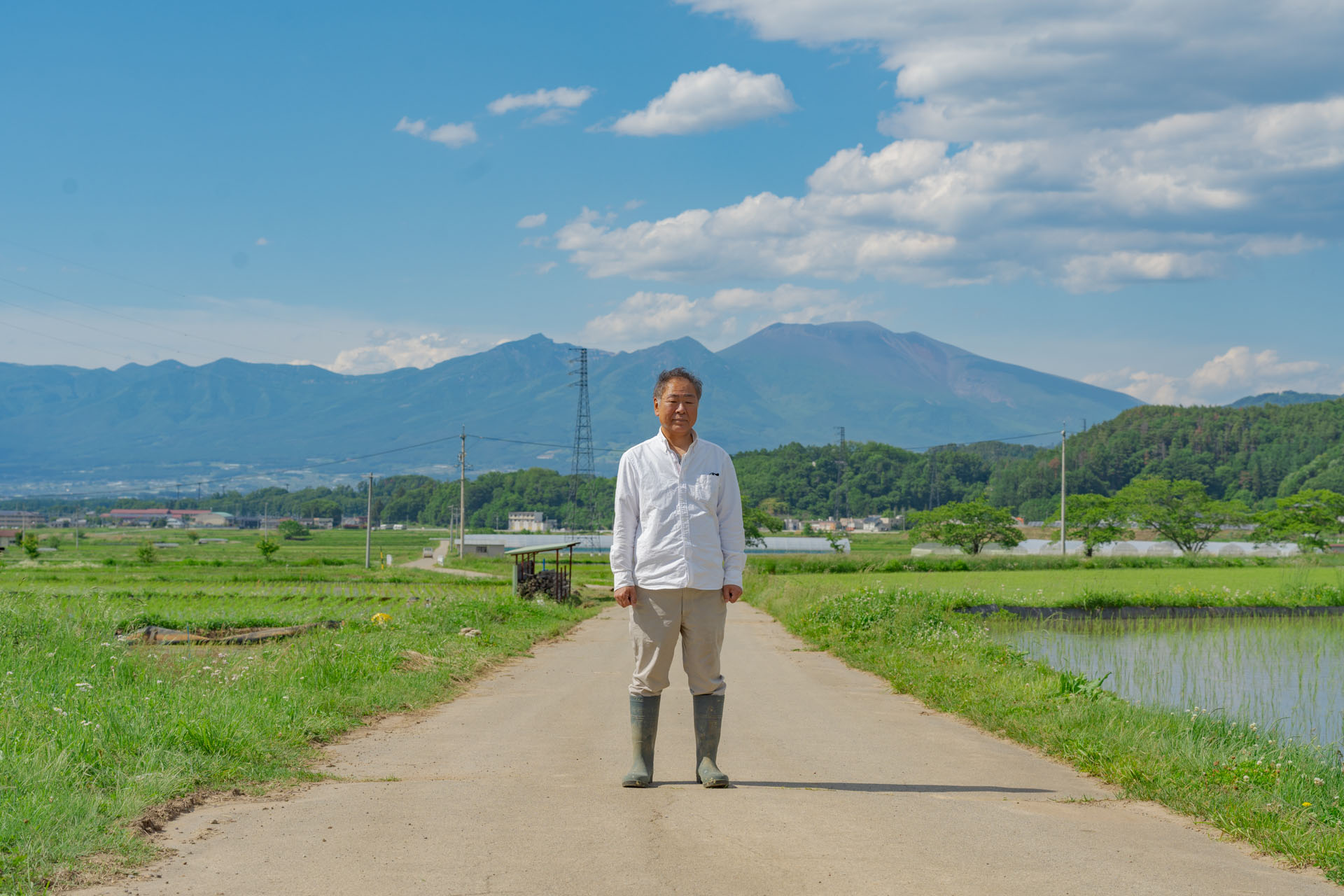

Sakunohana Sake Brewery
Kiyokawa | Hitogokochi
Hitogokochi raised through the beauty
of the seasons in Kiyokawa
The Kiyokawa area, where the Sakunohana Sake Brewery have their rice fields, shows many different faces throughout the changing seasons, always with Mt Asama dominating the skyline in the background. 5th generation owner Hisatomo Takahashi points out that the soil retains water well, circulating nutrients to the rice plants. Breezes keep the fields ventilated and help prevent disease, while the area has plenty of sunshine to help the plants grow. And the sake made from the Hitogokochi rice grown in this perfect spot, blessed by nature, is just as good as you imagine.
MORE
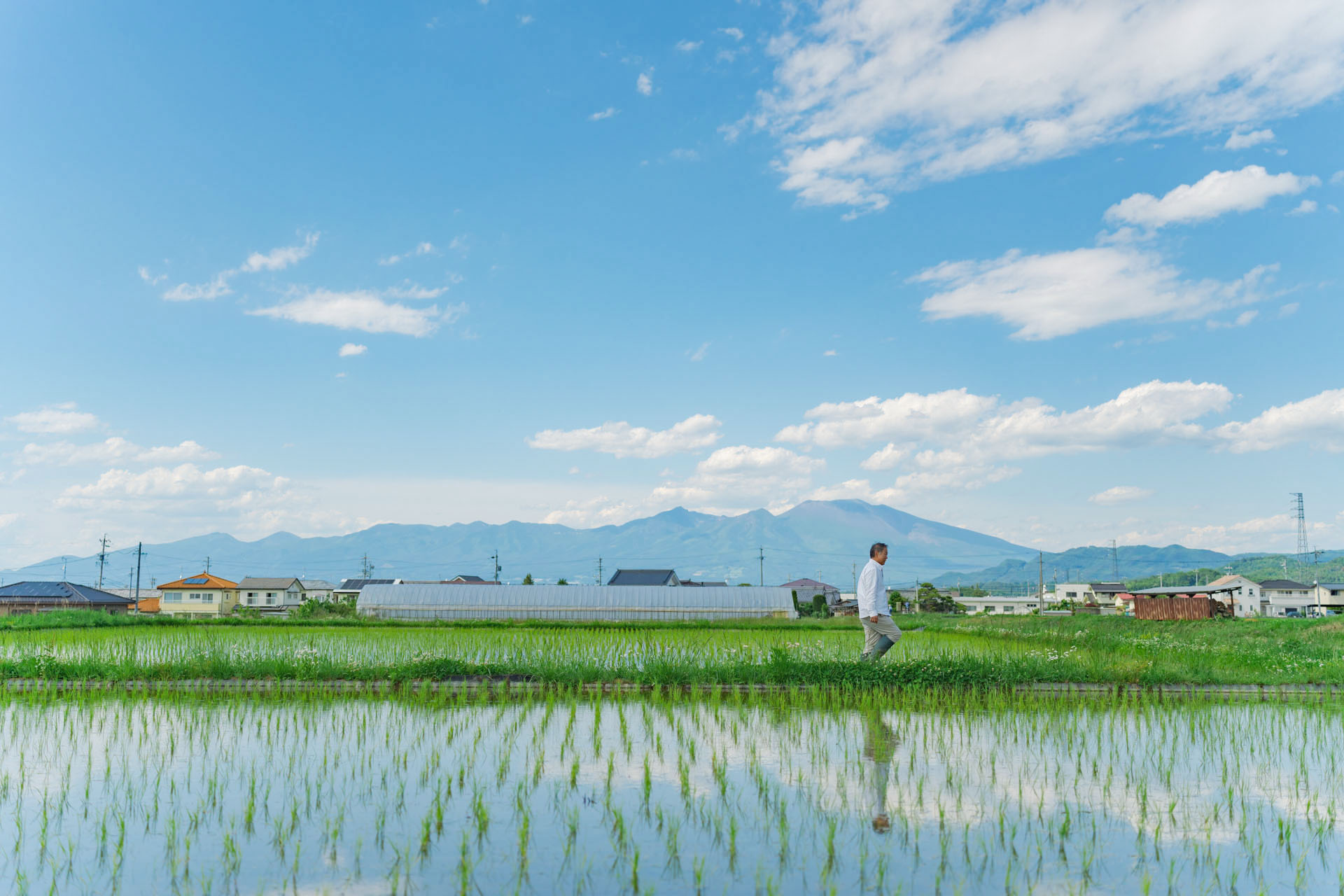

Sakunohana Sake Brewery
Shimogoe | Sankei Nishiki
Fields of Sankei Nishiki rice grown to brew daiginjo sake
These fields near the brewery used to grow Sankei Nishiki are shaped into neat rectangles, lined up to create a beautiful view–very different from Hisatomo Takahashi’s childhood memory of a patchwork of irregular shapes. The area is full of small fields, about 1000 m2 (0.25 acres), and 3000 m2 (0.75 acres) yields a harvest of 25–26 bales of Sankei Nishiki. The variety is suited to intensive polishing, and is therefore destined to become daiginjo.
MORE
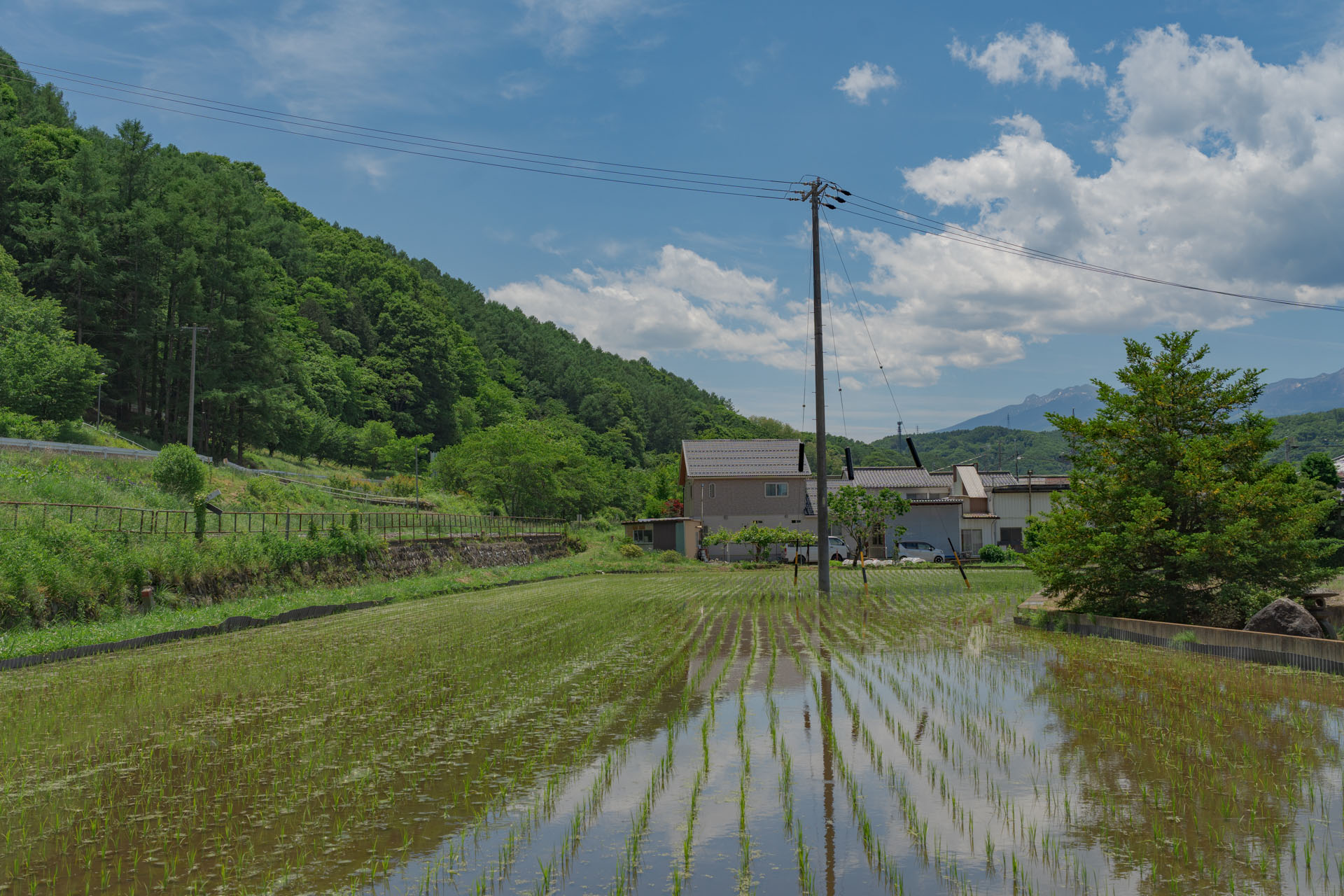

Kurosawa Sake Brewery
Hozumi Tenjin | Sankei Nishiki
Fields of dragonflies and fireflies
Looking out the window on the JR Koumi line, you’ll glimpse the brewery’s rice fields clustered around the Hozumi Tenjin Shrine. Fireflies dance around their water source in the summer, giving way to giant dragonflies in the fall. A decade of efforts to reduce agrochemicals finally bore fruit in 2023 when they stopped using herbicides and chemical fertilizer completely. Owners and staff work together to tend the rice fields, respecting the tiny creatures that call them home as they grow their Sankei Nishiki.
MORE


Kurosawa Sake Brewery
Sakida | Hitogokochi
High altitude rice fields caressed by the wind
The Kurosawa Sake Brewery rice fields are in the hamlet of Sakida, on top of a hill just 50 m (165 ft) from Yachiho Station on the JR Koumi Line. The brewery is operated by two brothers, 6th generation owner Takao Kurosawa and younger brother Yohei as master brewer. Generations of partnering with local farmers means they can make all their sake with rice grown in Nagano Prefecture. They doubled down on their commitment to make sake rooted in the local area in 2005, and started growing their own rice in these fields.